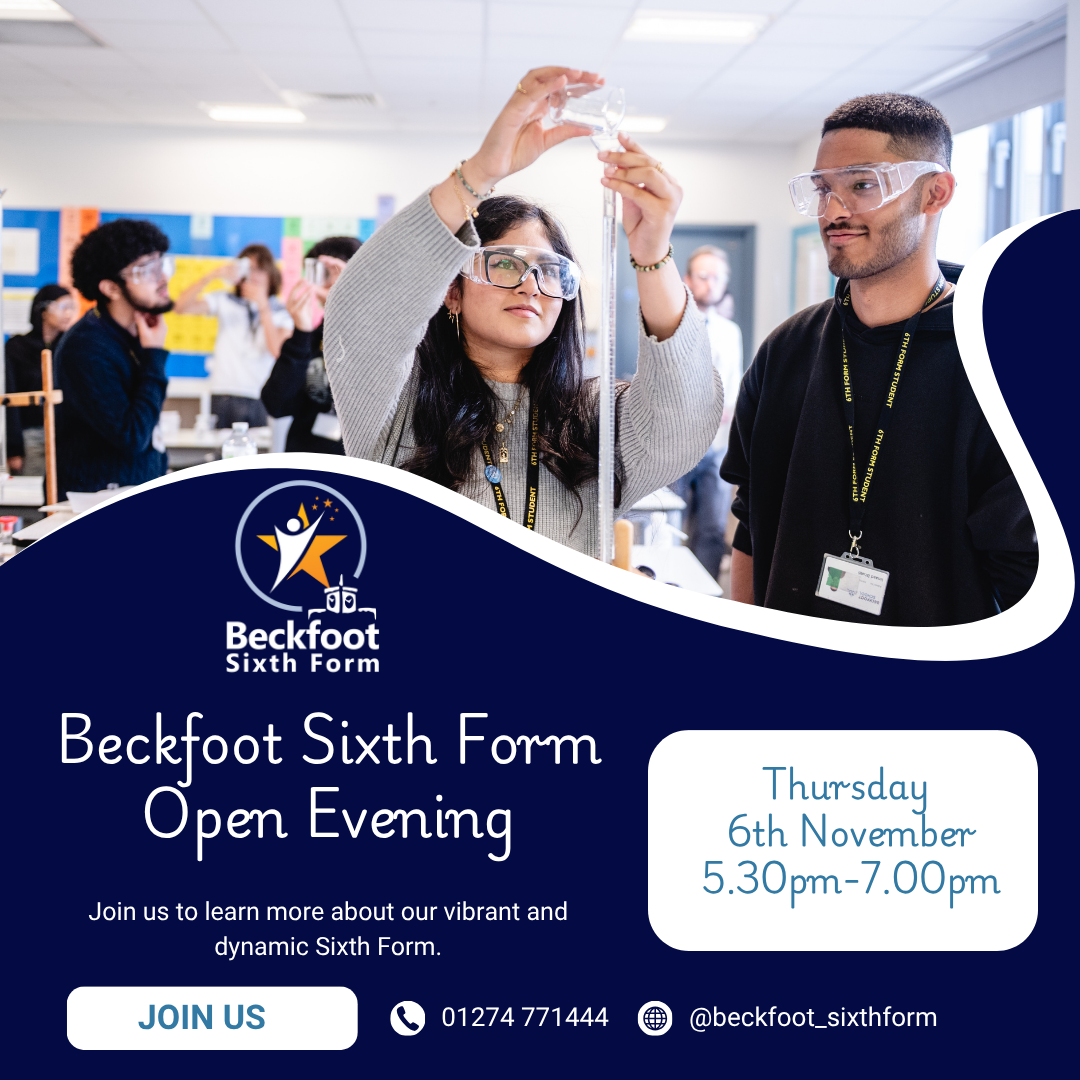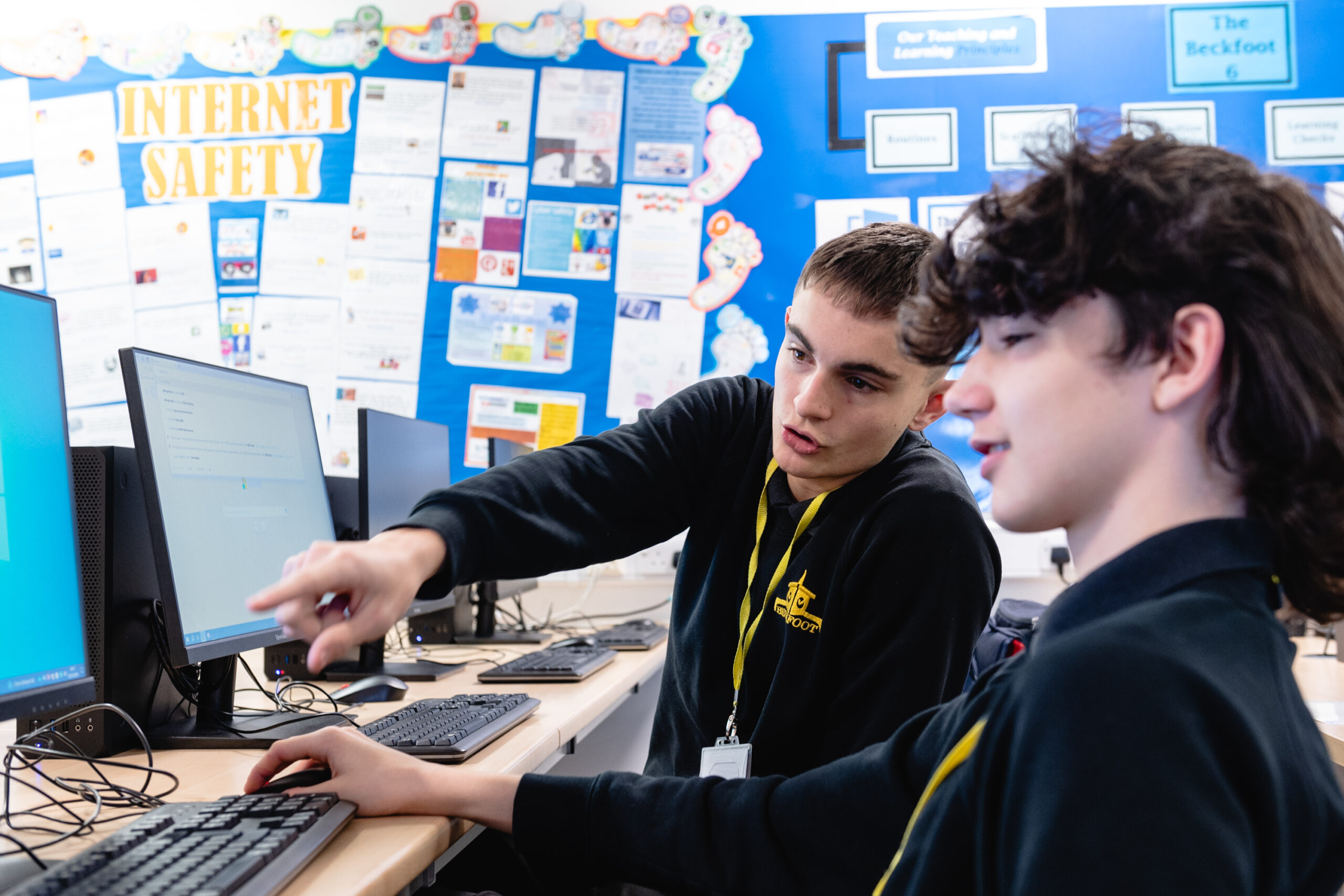Sixth Form Open Evening - Thursday 6 November 2025



A high quality Computer Science education ensures all students:
In Computer Science we enrich our students through the Bebras Computational Thinking problems, Cyber Switchup, stretch and challenge activities and further reading materials.
Our students will be able to stay safe while exploring the World Wide Web and be able to share best practices with the wider community, helping them become responsible digital citizens.
In years 7, 8 and 9, internal assessments will take place throughout each year to monitor student progress and further inform teaching and learning.
At GCSE, you will be assessed by two exams, with mocks and assessments throughout the year to assess your progress.
Our Computer Science curriculum develops employable skills, analysis and evaluation, algorithmic thinking, problem-solving and logical reasoning. Our students use technology safely, responsibly, and creatively, applying their skills to real-world problems and future careers in a digital world.
| Year | Cycle 1 | Cycle 2 | Cycle 3 |
|---|---|---|---|
| Year 7 | Internet Safety:Students will learn how to collect and use digital images using appropriate software. They will explore responsible online behaviour, understanding what is right and wrong when using technology and online services. Students will explore responsible online behaviour, create strong passwords, recognise online risks, and develop good digital habits for school and everyday life. | Algorithmic thinking: Students will develop problem-solving skills by learning how to design and analyse algorithms. They will explore how algorithms are sequences of steps used to complete tasks and how they differ from computer programs. This unit encourages logical thinking, creativity, and perseverance—foundational skills for future computing and cybersecurity learning. | Small basic programming: Students will understand how to control movement using commands and explore key computational thinking concepts such as sequencing, repetition, and user input. Students will create simple programs safely and responsibly, gaining confidence in coding and seeing how programming connects to real-world technology and future careers. |
| Year 8 | Data Representation: Students will explore how data is stored and represented digitally. Students will understand how text, images, and sound are converted into binary form. | Small basic programming: Students will learn fundamental programming concepts using Small Basic, developing problem-solving and logical thinking skills. Students will safely create programs that model real-world problems and strengthen computational thinking. | Hardware, software, system security and logic gates: Students will learn about computer components, storage devices, and logic gates. Students will also explore system security and safe computing practices, understanding how hardware, software, and cybersecurity work together. |
| Year 9 | Cyber Security: Students will learn about the importance of cybersecurity, the threats faced by digital systems, and how to protect data and systems from cyberattacks. Students will explore topics such as malware, phishing, and social engineering, developing an understanding of how to stay safe online and the importance of ethical behaviour in the digital world. | Python Programming: Students will be introduced to Python programming, focusing on writing simple programs using variables and performing calculations. They will build confidence in problem-solving and computational thinking while writing safe, secure, real-world programs. | Networks and cybersecurity: Students will explore different network types, their components, and data transmission. Students will learn network safety and secure data handling. |
| Year 10 | Unit 1 – Fundamentals of Algorithms: Students learn how algorithms are used to solve problems and how they can be represented. Students develop logical thinking and problem-solving skills, applying algorithms safely and efficiently to real-world scenarios. | Unit 2 – Programming and Data Structures: Students explore data structures, Boolean logic, and random number generation. Students understand how to organise and process data effectively, applying safe and responsible programming techniques. | Unit 4 – Computer Systems: Students will explore the different components of computer systems, including hardware and software. They will consider how systems interact safely and efficiently and how system design impacts real-world applications. |
| Year 11 | Unit 5 – Computer networks: Students will learn about computer networks, their types, benefits, risks, and the differences between wired and wireless networks. They will also focus on safe network practices and protecting data in connected environments. | Unit 7 – Relational Databases and Structured Query Language (SQL): Students will learn about relational databases, their structure and how to write SQL queries. They will apply these skills to manage and interrogate data safely and responsibly. | Preparation for GCSE Exams: Students will consolidate all content covered over two years and practise answering GCSE-style questions. They will apply knowledge and practical skills safely and effectively, preparing for assessments and real-world applications. |